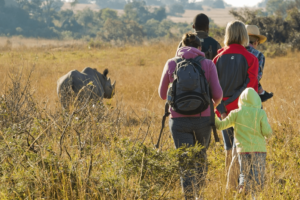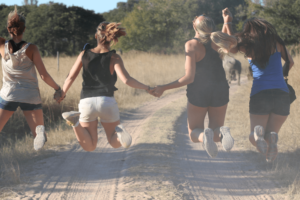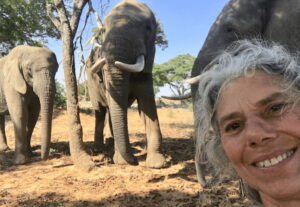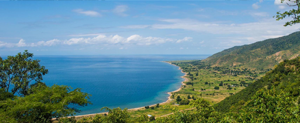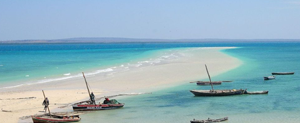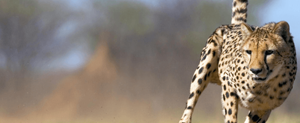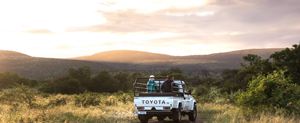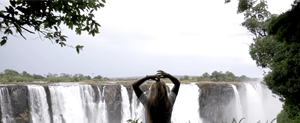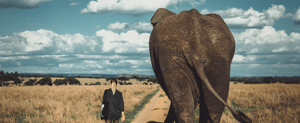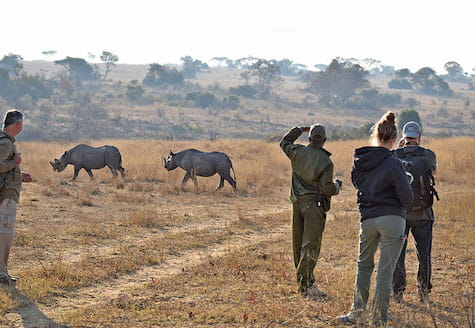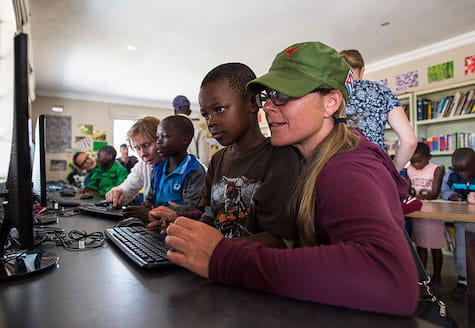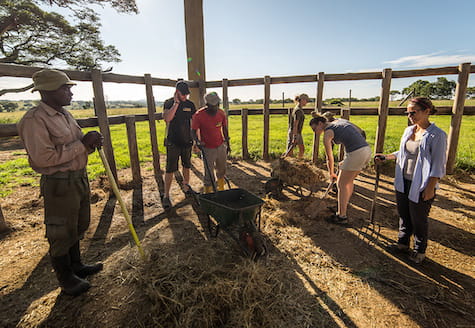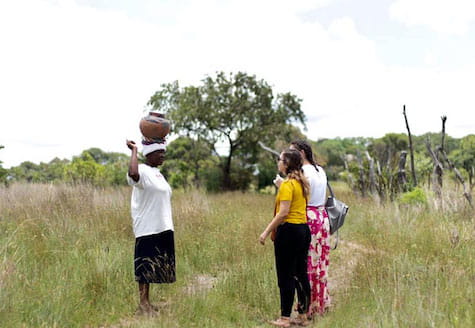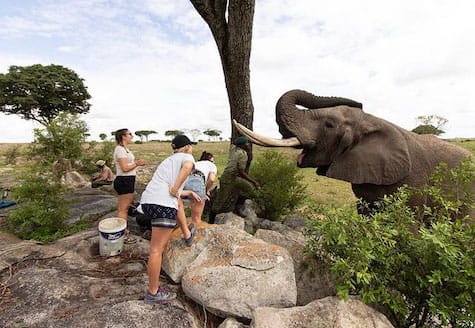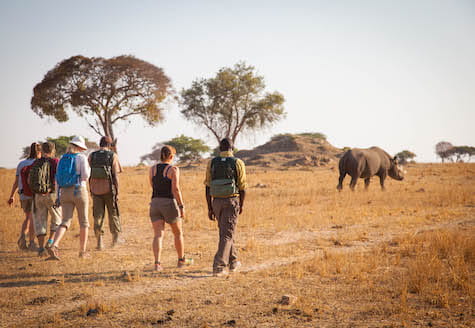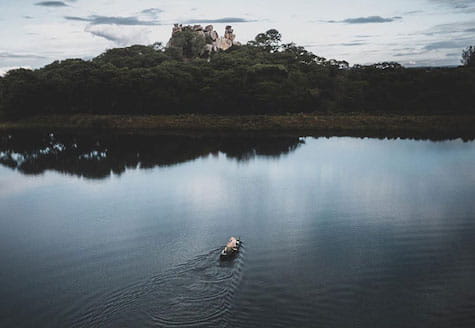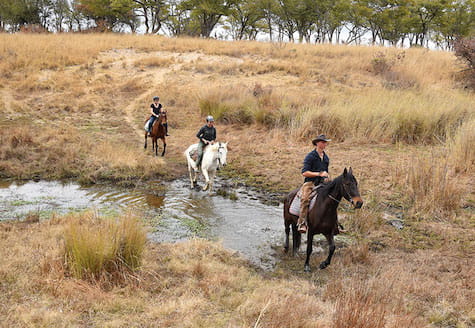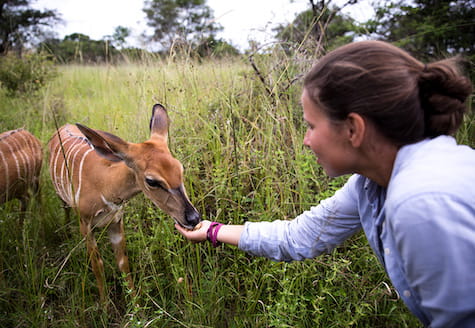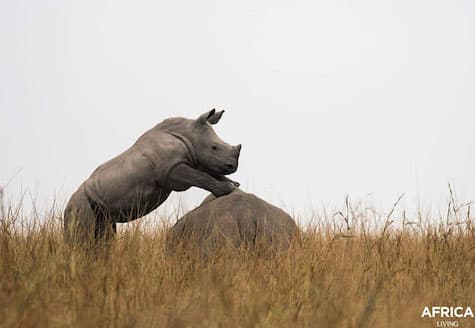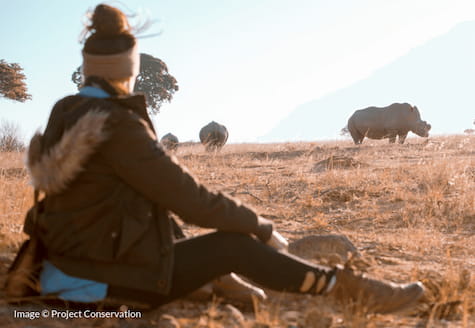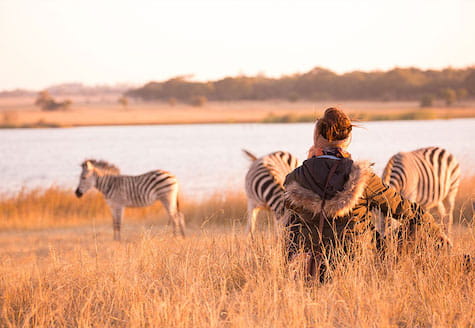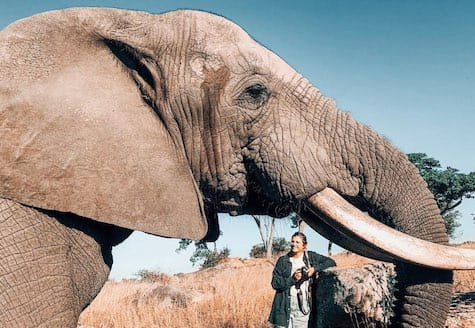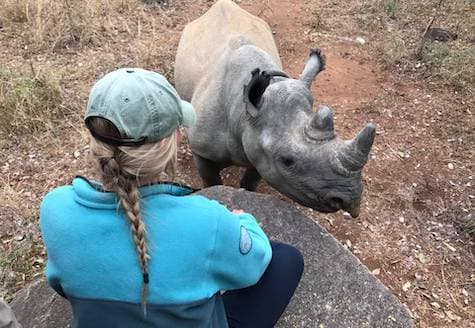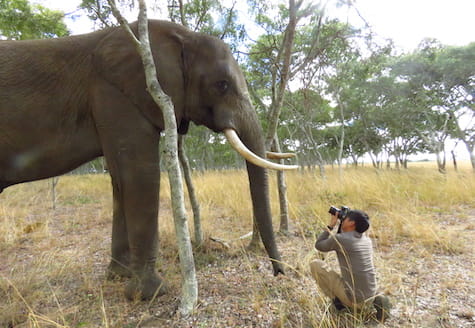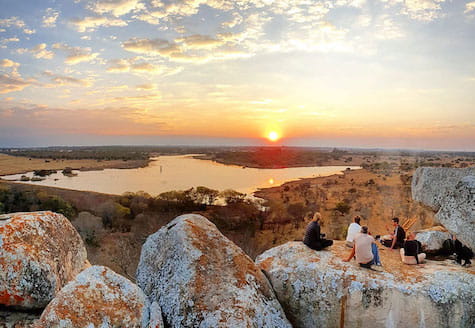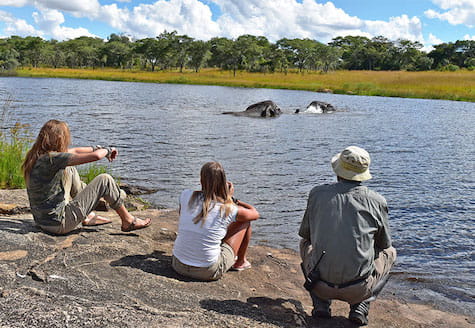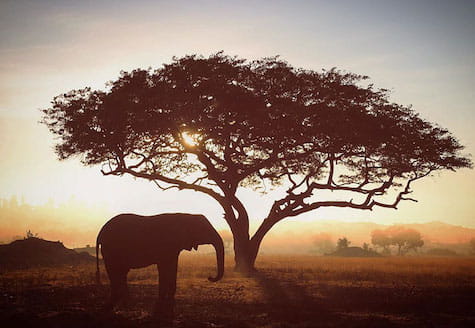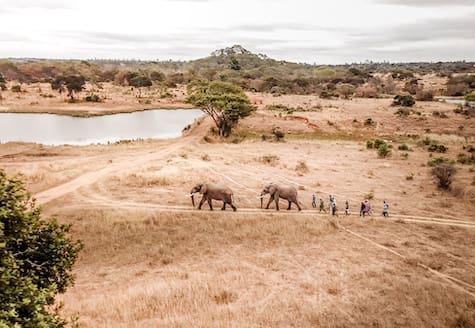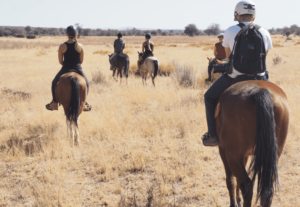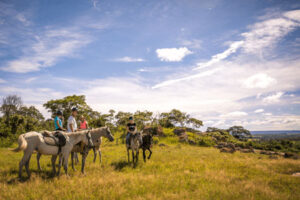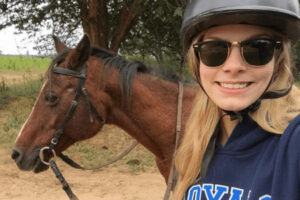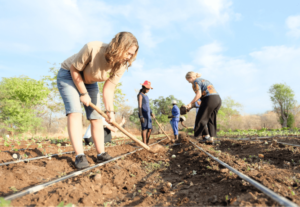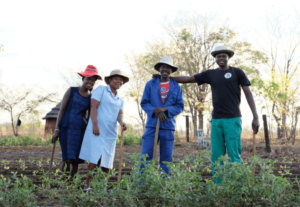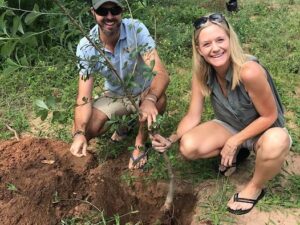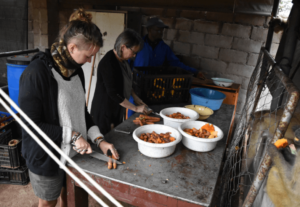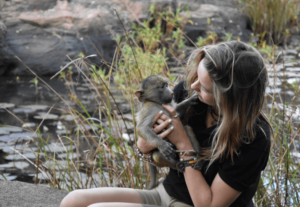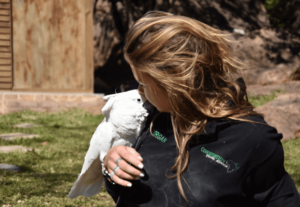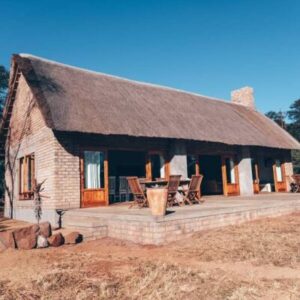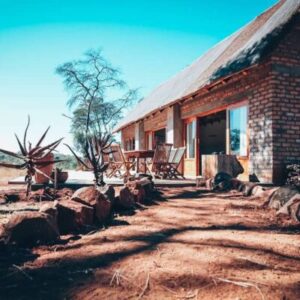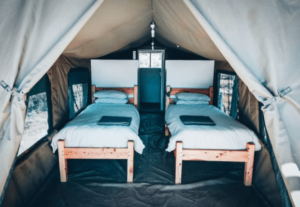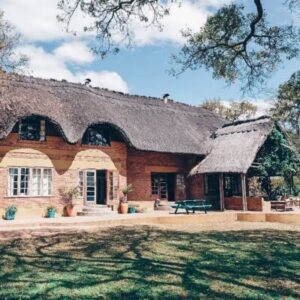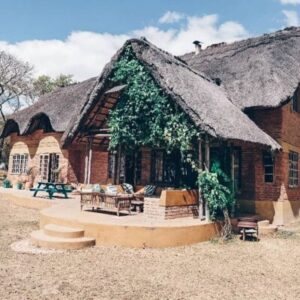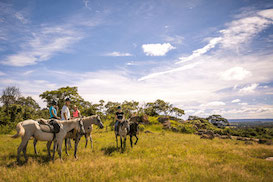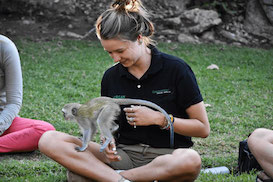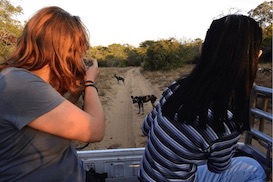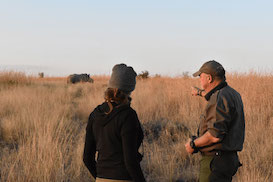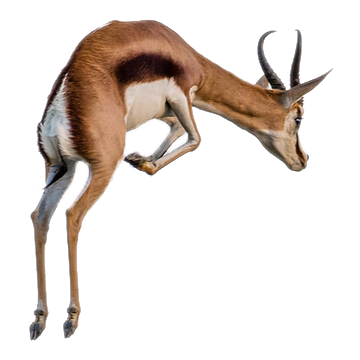Elephant & Rhino Conservation Volunteering
Work With Endangered AnimalS
Zimbabwe
1-12 weeks
Every Monday
Max 12 people
Age 17+
From $1,050
Zimbabwe
1 - 12 weeks
Every Monday
Mondays
Max 12 people
Max 12
Age 17+
From $1,050
Elephant & Rhino Conservation
This project is dedicated to the conservation of wildlife, with a focus on protecting endangered black rhinos, elephants, and cheetahs. When you join the Rhino & Elephant project at Imire in Zimbabwe, you’re making life better for amazing animals and the human communities they share their environment with.
The project’s mission is to ensure the long term future of Africa’s remaining rhinos, combining wildlife protection, community involvement and responsible tourism.
Ready to volunteer with rhinos?
Read on for more about this life-changing opportunity.
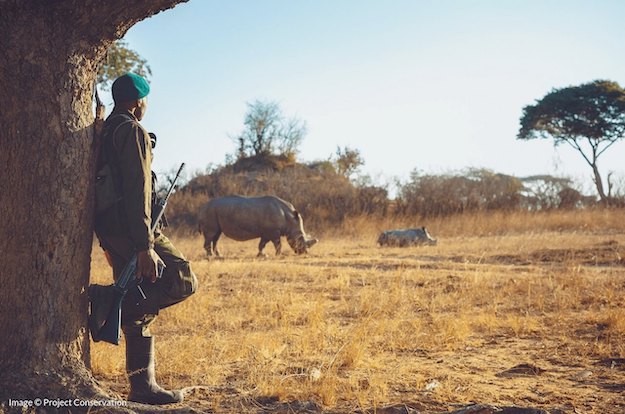
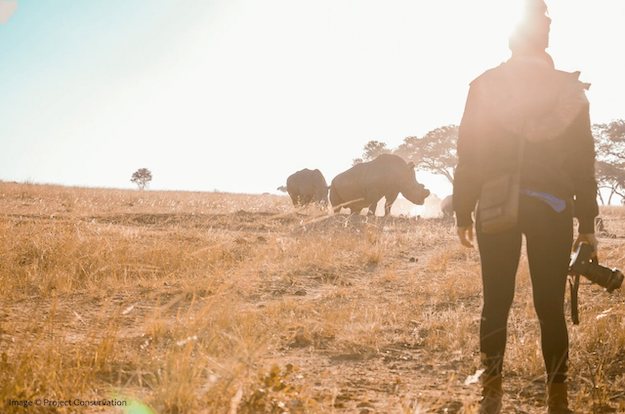
How will I be helping?
When you join the Rhino & Elephant project, you become part of a dedicated, passionate volunteering family. This unique wildlife conservation volunteer programme combines conservation work with rhinos, elephants and cheetah, with community projects and wildlife research.
It’s a once-in-a-lifetime opportunity to volunteer with rhinos and play an important role in the daily activities of a wildlife conservancy. Whether you’re hammering in nails or tracking rhino calves, you’re contributing to something very special.
Is volunteering with rhinos ethical?
It is indeed. Private conservancies like Imire are vital in the mission to save rhinos. The human-wildlife conflict is probably the biggest issue we face as conservationists. But you can make a difference.
By volunteering with rhinos at Imire you play a hands-on role protecting endangered wildlife and contribute to a conservation success story – where communities and wildlife coexist peacefully and productively.
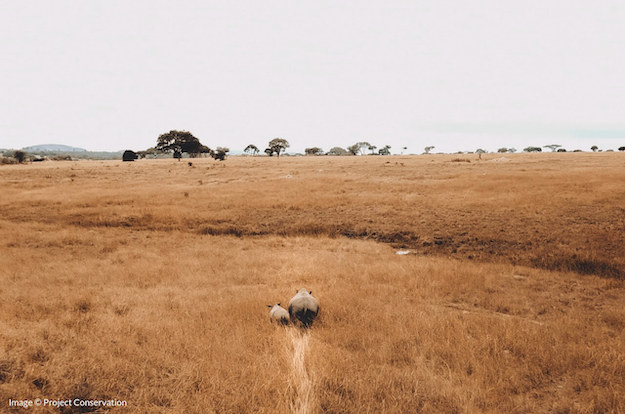
Project showreel
Project gallery
Project videos
Project information
Our Elephant & Rhino Conservation Programme takes an integrated approach to conserving endangered wildlife. Volunteers like you are key to protecting Imire’s ten rhinos and three elephants, through a variety of different activities and projects. You’ll work closely with local employees and community members to help keep rhinos safe from harm.
This is a unique opportunity to immerse yourself in day-to-day life in Africa. In return, you’ll contribute to an important conservation cause. It’s truly life-changing.
- Work with black and white rhinos, elephants, cheetahs and a range of other wildlife.
- Learn to track cheetahs and rhinos using telemetry.
- Conduct wildlife observations and animal monitoring.
- Participate in important conservation activities including game counts and wildlife research.
- Contribute to anti-poaching efforts to ensure the continued safety of the animals.
- Work with local school children on literacy and conservation projects.
- Learn about wildlife conservation and the ongoing threat to African wildlife, and experience the huge responsibility of managing a wildlife conservancy.
Volunteers will usually get involved in some or all of the following activities:
Endangered species conservation – rhinos, elephants and cheetah:
- Monitor rhinos, elephants and cheetah and collect observational data on animal behaviour, health, movements, interactions and feeding activities.
- Have close up encounters with the rhinos and elephants while you gather data.
- Learn from experienced rangers about the challenges these animals face to survive.
- Repair elephant damage.
- Learn to use telemetry and identify rhino and cheetah tracks and signs in the bush.
Anti-poaching and security
- Provide additional manpower by working with anti rhino poaching teams to conduct foot patrols and snare sweeps on the front line.
- Secure, repair and check the boundary fences.
- Conduct weapons training and anti-poaching simulations.
- Communicate anti-poaching messages to school children.
Conservancy management
- Deliver feed and nutritional supplements around the conservancy, focusing on the rare sable antelope, giraffes, lion, elephants and buffalos.
- Undertake game counts and herd studies on foot, by vehicle and on horseback.
- Carry out indigenous tree planting, and invasive and alien species removal.
- Maintain fences, roads, fireguards and equipment.
Community projects
Imire has been closely involved with the Wedza community since its foundation and community engagement is the essence of their conservation philosophy. This can be seen in the long-running involvement in local employment opportunities, education support, healthcare and poverty alleviation projects. Rhino volunteers will get involved with:
- Education projects focusing on English literacy and conservation education.
- Organic gardening and tree planting.
- Beekeeping.
- Homework and computer training for older children and adults.
- Cultural exchange experiences through traditional home visits and Shona culture evenings.
When can I volunteer?
Volunteers can join the Rhino & Elephant Conservation Programme on Mondays.
The project is closed from 16th December 2024 – 6th January 2025.
Current pricing:
Project fees are $1,050 per person per week, up to a maximum stay of 12 weeks.
All prices are in USD.
What’s included in the cost?
- Project contribution: this goes directly to our project partner, and provides funding to ensure the programme can continue to meet its goals. For this project it will cover things like staff costs, equipment purchases, maintenance of buildings, equipment and vehicles, veterinary fees, animal feed, fencing, and funding for community projects
- Accommodation and three meals per day
- Return airport transfers (Mondays at set times)
- Laundry and housekeeping
- Comprehensive orientation and supervision
- Practical instruction by experienced guides
- Equipment and materials required to do your work
What’s not included?
- Flights or travel to Harare, Zimbabwe
- Visa fees (variable depending on nationality)
- Travel insurance (compulsory)
- Personal expenses such as souvenirs, drinks from the bar, snacks
- Pre and / or post programme accommodation (if required)
- Additional excursions
- Local SIM card and data / airtime bundles (optional)
- Administration fee ($40)
View our full booking terms and conditions.
Zimbabwe volunteer packages
HORSE RIDING & RHINO CONSERVATION COMBO
If you are a keen horse rider, adding a week or two on the Horse Riding & Rhino Conservation Programme, also based at Imire, makes an incredible all-round volunteer experience. Ride alongside zebras and giraffes; carry out horseback patrols to deter poachers, and monitor the boundary fences – all on the back of your very own bush horse.
Combination project pricing:
1 week Rhino Conservation / 1 week Horse Riding: $2,485
2 weeks Rhino Conservation / 1 week Horse Riding: $3,535
1 week Rhino Conservation / 2 weeks Horse Riding: $3,920
Click for more details of the Horse Riding & Rhino Conservation Programme.
WATCH: Horse Riding & Rhino Conservation Project video.
CONSERVATION & COMMUNITIES COMBO
We have introduced a new Conservation & Communities combination project which enables volunteers to combine two very different projects within Zimbabwe. If you want to experience iconic wildlife, but also learn first-hand about the challenges of rural life, and work on much-needed community support projects, we highly recommend spending a week or two at our Community Outreach Programme, based just outside Africa’s Adventure Capital – Victoria Falls. Click for more details of our new Conservation & Communities Programme.
CONSERVANCY & SANCTUARY COMBO
We’ve also combined our Rhino & Elephant Programme with our popular Primate Conservation Programme.
Experience large and small animal conservation, working with two organisations dedicated to Zimbabwe’s animal welfare. As well as interacting with and learning about Africa’s iconic large mammals, you can also get to grips with caring for a range of smaller mammals and birds, based at Zimbabwe’s only dedicated primate rehabilitation centre. Click for more details of our Conservancy & Rehabilitation combination project.
The volunteer programme is small and welcoming, with no more than 12 volunteers in a group. There are two volunteer accommodation sites, both situated in the heart of the conservancy.
Bedrooms are shared (same sex sharing), with volunteers sleeping in comfortable single beds. All bedding is provided, including duvets, pillows and extra blankets in winter. Couples will always be accommodated together in a private room. Showers and toilet facilities are shared, and hot water is supplied for showers and washing. Power sockets for electrical items are available in communal areas (UK three-pin square plugs).
Three home cooked meals are provided each day on a self-serve basis. Vegetarian and limited vegan options are available upon request, but should you have any complicated dietary requirements or food allergies, it is important you let us know before you arrive. The project are unable to cater for very specific dietary needs (for example gluten, dairy or wheat intolerance), so you may be asked to bring any specialist foods with you. The chefs will be able to prepare these for you alongside other volunteer’s standard meals. Clean, safe drinking water is pumped from a borehole.
Your rooms and communal areas will be cleaned every day, and the housekeeping staff will also do your laundry when required. An outhouse laundry is available for washing smalls or should you wish to do an extra load of your own.
Bear in mind that electricity can be intermittent in Africa, especially during our rainy season. For backup, the project is prepared with basic solar powered lighting and a generator which will run for a short time in the morning and evening.
There is pay as you go WiFi at one accommodation site, and 3G signal at the other. When there are electricity problems, the cell phone signal and WiFi connection can be problematic, but there is usually enough signal to touch base with home in certain areas of the conservancy.
The volunteer coordinators have access to a safe for securely locking away any cash or valuables you may have brought with you.
For the latest travel updates, please visit our Zimbabwe destinations page.
Who should volunteer on this project?
The unifying motivation of nearly all Imire volunteers is an interest in a genuine conservation programme, and a desire to be part of a smaller group of volunteers. This rhino conservation project is a wonderful experience for volunteers of all ages, where you can experience Africa in a safe environment, and become part of a very special team. There is some walking and foot-based tracking on the project, plus climbing in and out of a high-sided vehicle, so volunteers should be of reasonable mobility.
How old do I need to be?
The minimum volunteering age for solo travellers is 17 years. There is no upper age limit, but for volunteers aged over 65, we do require your medical form to be signed by a doctor.
Can I volunteer with rhinos and elephants with my family?
The project is very happy to accept family volunteer groups. Families with children aged 14 and over may be accommodated within the main volunteer group (children aged 14-16 will always be accompanied by adults). Volunteer groups tend to be a diverse mixture of ages and nationalities.
Families who have younger children will be accommodated separately and their volunteer activities and meals will be separate from the regular volunteer groups.
Please visit our Rhino Conservation – Family Programme page for further details.
How many people will there be?
There is a maximum of 12 volunteers in a group at any one time, plus staff and volunteer managers.
When can I join?
Volunteers should aim to arrive and depart on a Monday. The inclusive transfer service is as follows:
Arrivals – Mondays
There is one collection from Harare International Airport at 3.00 pm every Monday afternoon. Should your preferred flight arrive later than this, you can either arrive in Harare the day before and arrange overnight accommodation in town, or you can arrive late on Monday and pay a transfer supplement of $100. If you choose to arrive the day before, you should make your way back to the airport the following day.
Departures – Mondays
There is one transfer from Imire which arrives at Harare International Airport at around 10:00 am on Thursday morning. Onward flights should depart later than midday to allow ample time to check in. Should you wish to book a departure transfer outside of this time, there is a transfer supplement charge of $100. Please do not book international flights departing before 9.30 am.
When is the best time to volunteer in Zimbabwe?
The game viewing and interaction at this project is great year-round. December to March is ‘baby season’, where many of the plains game give birth, so there are always lots of new animals around over that time.April – October is the dry season, with the rains usually coming again in mid to late November. June – August is winter, characterised by warm, sunny days, clear blue skies and cool evenings and nights. October is the hottest month, with temperatures in the area regularly reaching 30-32 degrees. November – March is summer, where rain showers are intermingled with hot, sunny days and temperatures of over 30 degrees.
Do I get some time off?
Volunteers work from Monday to Saturday lunchtime. Saturday afternoon and Sunday is leisure time, where you can go fishing, canoeing or hiking, or relax in the garden with a good book! We highly recommend a weekend excursion to Victoria Falls (a one hour flight), which should be organised prior to your arrival.
How long can I volunteer in Zimbabwe for?
The minimum project length is one week, and the maximum stay is 12 weeks. We recommend a 2-4 week stay to get the most out of your trip.
How much spending money should I bring?
We recommend bringing around $100 per week in USD to cover personal expenses such as drinks, souvenirs, t-shirt, snacks, tips and internet usage. A weekend trip to Victoria Falls,, will cost from $400 depending on flight prices and accommodation.
Do I need a visa to volunteer in Zimbabwe?
Most nationalities, including British, American, Canadian, Australian and most EU citizens, can and should get a 30-day tourist visa upon arrival into Harare. Fees are dependent on nationality and range from $30 – $75 (paid in USD cash). Extensions are available from the Department of Immigration in Harare, up to a maximum stay of 6 months. It is your responsibility to check your visa eligibility prior to arrival. Please check eligibility with the Zimbabwe government evisa site: www.evisa.co.zw/regime.
What animals will I encounter?
Imire is world-world-famous for its eight black and four white rhino. In addition, the conservancy is home to three elephants, two cheetahs, a herd of Cape buffalo and an elderly male lion, living out his retirement in comfort! There is a variety of plains game including eland, kudu, nyala, waterbuck, blesbok, zebra, giraffe, wildebeest and crocodile, plus herds of the rare sable antelope – Zimbabwe’s National Animal. Imire is also home to a wide variety of birds, reptiles and snakes.
What vaccinations do I need?
Please consult your GP or travel clinic for detailed medical advice. All volunteers should make sure their Tetanus is up to date. A rabies vaccination is not compulsory.
Malaria – the project is regarded as a low-risk malaria area, but please consult your GP for guidance.
Please visit this UK government website for more details.
The primary goal of Imire is to support Zimbabwe’s rhino heritage, through the successful breeding and reintroduction of the endangered black rhino. Alongside this goal, is to ensure the long term protection of Zimbabwe’s wildlife through a unified and holistic approach to wildlife conservation. Their aim is to create a blueprint for small conservancies, enabling them to peacefully and successfully exist alongside local communities, ensuring that environmental stakeholders, including landowners, conservationists, communities and local farmers, all benefit from the presence of wildlife.
The conservation volunteer programme forms a critical part of Imire’s mission to connect responsible travellers, wildlife programmes and community projects, to create a sustainable, long term, collaborative conservation strategy. Wildlife volunteers at Imire have a significant impact on Imire’s conservation efforts in Zimbabwe.
During your time volunteering in Zimbabwe, volunteers will gain an appreciation of the dedication and commitment it takes to protect wildlife in Africa, and obtain an overall understanding of conservation strategies and ethical conservation practices.
Imire: Rhino & Wildlife Conservation is a 10,000 hectare privately owned rhino conservancy in the Mashonaland East district of Zimbabwe, approximately 130 km east of Harare. The conservancy is dedicated to the welfare of all wildlife, with a particular focus on protection and breeding. Of the world’s five rhino species – the white rhino, the black rhino, the greater one horned rhino, the Javan rhino, and the Sumatran rhino – Imire is home to the white rhino and the critically endangered black rhino.
Imire was founded in 1948 by Norman and Gilly Travers. Originally farmers, the Travers’ had a passion for wildlife and conservation, leading to the establishment of Imire as a wildlife conservancy in 1972. During the 1970s, game was introduced back onto what was previously farmland. Then, like Noah’s Ark, the animals came in two by two and by 1980 the park was home to sizable herds of plains game – waterbuck, impala, nyala, zebra and the rare sable antelope.
A history of rhino conservation
The black market consumer demand for rhino horn created the rhino poaching crisis in the 1980s, and most of Zimbabwe’s remaining black rhino population were relocated to the relative safety of Intensive Protection Zones within private conservancies. In 1987, government agencies granted Imire custodianship of seven orphaned calves from the Zambezi Valley and became a dedicated black rhino breeding station. To date, 16 rhinos have been born on the reserve, and Imire has released 13 black rhinos back into National Parks in Zimbabwe.
With increasingly sophisticated wildlife poaching, rhino numbers have again dropped alarmingly and have caused renewed fears of extinction. Until the current high levels of poaching abate in Zimbabwe’s National Parks, Imire has resolved to protect and secure its rhino onsite, rather than risking release into wilderness areas.
Imire’s current strategy is for their rhino populations, except for a core breeding herd, to be released into a community-supported, second stage, free-roaming protected areas within Imire’s boundaries. This allows the rhino to become less habituated, without daily interactions and supplement feeding.
Armed guards remain with the rhino, but at a distance. In this way Imire can ensure their rhinos are safe from birth, until such a time when they are able to confidently release rhino back into their wild habitats, in Zimbabwe’s National Parks.
Other wildlife
Imire is world-world-famous for its eight black and four white rhino, including two rhino calves. In addition, the conservancy is home to three elephants, a herd of Cape buffalo and an elderly male lion, rescued from captivity on a farm.. In 2021 Imire was chosen as a partner of the The Aspinall Foundation and given two cheetahs as part of its international wildlife rewilding programme.
There is also a variety of plains game including eland, kudu, nyala, waterbuck, blesbok, zebra, giraffe, wildebeest and crocodile, plus herds of the rare sable antelope – Zimbabwe’s National Animal. Imire is also home to a wide variety of birds, reptiles and snakes.
Volunteer reviews
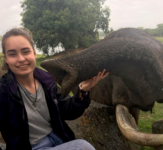

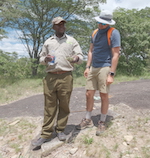
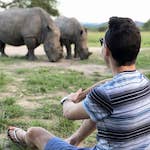
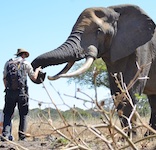

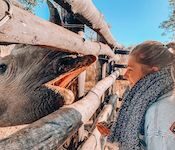
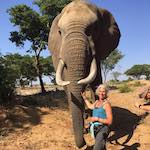
Other projects you might like
Combine horse riding safaris, anti-poaching patrols and horseback game counts, with volunteer work with rhinos and elephants.
From $1435
1 - 2 weeks
Volunteer with monkeys and baboons at Zimbabwe’s only dedicated primate rehabilitation centre. Gain animal care experience and assist in wildlife rehabilitation.
From $875
1 - 12 weeks
Support conservation work to protect endangered species in South Africa. Monitor priority species including lion, leopard, cheetah, rhino and wild dog.
From $1,625
2 - 16 weeks
Volunteer with rhinos and get practical experience in anti-poaching techniques. Learn from South Africa’s most experienced conservationists.
From $1,395
7, 10, 14 days

